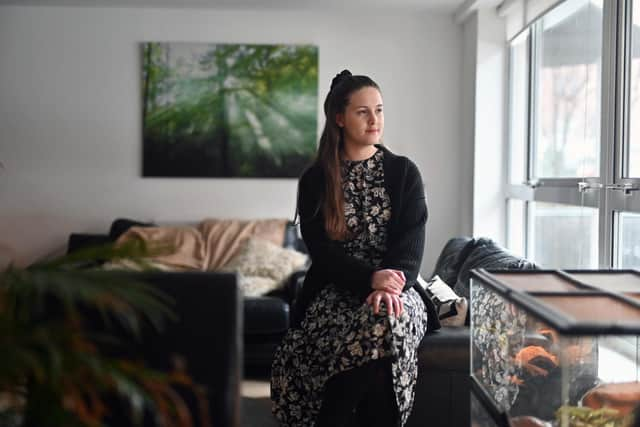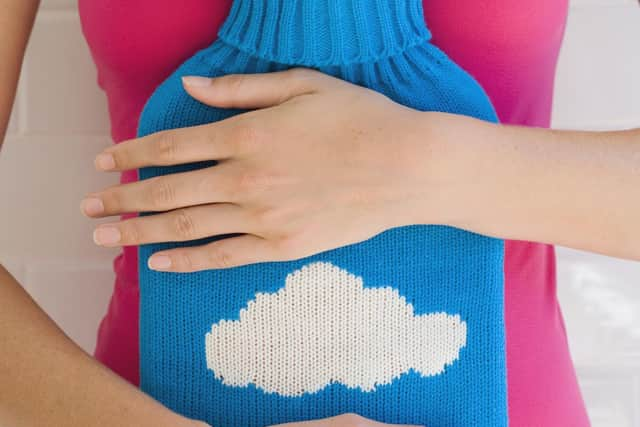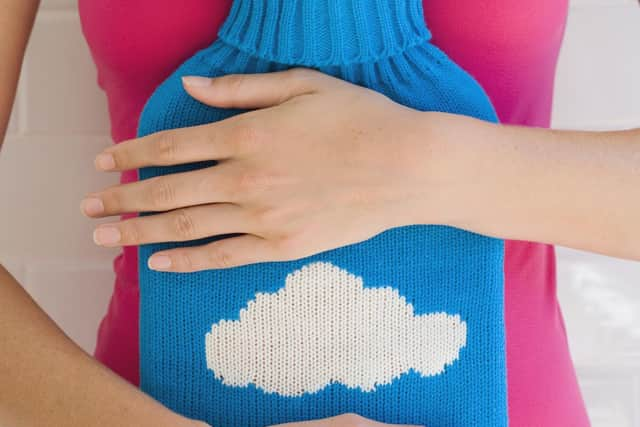Endometriosis: ‘I would spend days curled up, vomiting with the pain' - Anna Bryan
I have endometriosis - a disorder which causes bits of uterine lining to grow outside of the uterus.
It mostly affects women of reproductive age, and can cause agonising periods, pain during sex and fertility issues, as well as a truckload of other unpleasant symptoms.
Advertisement
Hide AdAdvertisement
Hide AdI was first diagnosed in January 2020. The only definitive way to diagnose endometriosis is through keyhole surgery - and I was lucky enough to get a slot before the pandemic reared its ugly head, cancelling all non-urgent medical procedures.


The strong anaesthetic had barely worn off, when my surgeon walked up to my hospital bed after my operation and confirmed she’d found lesions typical of endometriosis.
At first, I was strangely relieved. After years of unexplained gnawing pain, I finally had an answer.
But as my scars began to heal, my calm acceptance of my diagnosis began to wear off, and my relief quickly morphed into anxiety.
At the time, I was in my last year of university, and knew I would soon have to jump into the working world, where I would be unable to manage my schedule around my condition.


By that point, I was seriously considering going into journalism - an industry I knew could be intensely competitive and even cut-throat at times.
I desperately wanted to be open about my condition, but would anyone want to hire me if they knew?
My condition had already affected my education - in high school, I was forced to take regular time off when the brutal effects of my cycle hit.
Advertisement
Hide AdAdvertisement
Hide AdThis was not the Ferris Buellerian day-off most kids dream of.


I would spend these days curled up on the bathroom floor, with cramps so severe I regularly vomited from the pain.
As if the pain wasn’t bad enough, the guilt was worse. I was the kid who was always described as ‘conscientious’ and ‘hard-working’ in school reports. Missing classes made me doubt these commendations. I felt lazy and weak, and my already existing anxieties about doing well in exams worsened.
Even though I ended up doing well throughout school and university in spite of the challenges my condition brought, I still carried these insecurities with me as I began to apply for jobs.
I worried my chronic fatigue would affect my ability to speedily churn out breaking news and my future bosses wouldn’t like me taking time off.


Despite all these anxieties, I landed my dream journalism job soon after graduating with my masters, starting in October.
By some luck, I made it through a few months without a flare-up, and hit the ground running with my fledgling career.
However, as soon as the adrenaline wore off, my symptoms began to creep back in. For a while, I managed to trudge through my work day - hiding my wincing from colleagues in video calls and clinging a hot water bottle to my abdomen while I typed away.
Advertisement
Hide AdAdvertisement
Hide AdI’d always been very comfortable sharing the ins-and-outs of my condition with family, friends and sometimes even strangers - but for some reason, opening up at work felt different.
New in my job, I wanted to be perceived as hard-working, resilient and able to tackle any challenge. But after years of convincing myself that endometriosis had made me weak and lazy, I thought telling my colleagues could change their entire impression of me.
After weeks of worry, I finally mustered up the courage to tell my manager about my diagnosis.
As soon as I spoke, I knew my anxiety had been wasted. He was nothing but kind and compassionate, and happily offered to give me time off whenever I felt I needed it. My colleagues have been similarly supportive.
While I’m lucky enough to work in a job with incredible people who value my health just as much as they value my contribution to the workplace, I know this isn’t the case for everyone.
A recent report carried out by the All-Party Parliamentary Group on Endometriosis found that nearly 40 per cent of people living with endometriosis were concerned about losing their job.
More than a quarter believed they’d missed out on a promotion because of their condition.
For now, I’m in a situation where I don’t feel I have to worry about these things. However, as a young journalist early in my career, I may move to a different organisation one day - and there’s no guarantee they will be as understanding of my condition.
Advertisement
Hide AdAdvertisement
Hide AdBut instead of looking towards the future with trepidation, I’ve recently resolved to look at the positives of working with endometriosis.
I may have to take slightly more days off than my other colleagues. I may choose to work from home, so that I can constantly refill my faithful hot-water bottle to help with pain. But I don’t believe any of these things makes me a worse journalist.
In fact, I believe my struggles with my condition have actually made me better at my job. Living with a chronic illness has made me more empathetic and helped me better understand other people going through pain - whether it be physical or mental.
When I am feeling well, I try to work harder and faster - knowing that a flare-up could strike at any moment and put me off track.
Lastly, living with this misunderstood, under-researched and often ignored condition has lit a fire in me - to search for and give a voice to the stories that no-one else is telling.
Comments
Want to join the conversation? Please or to comment on this article.